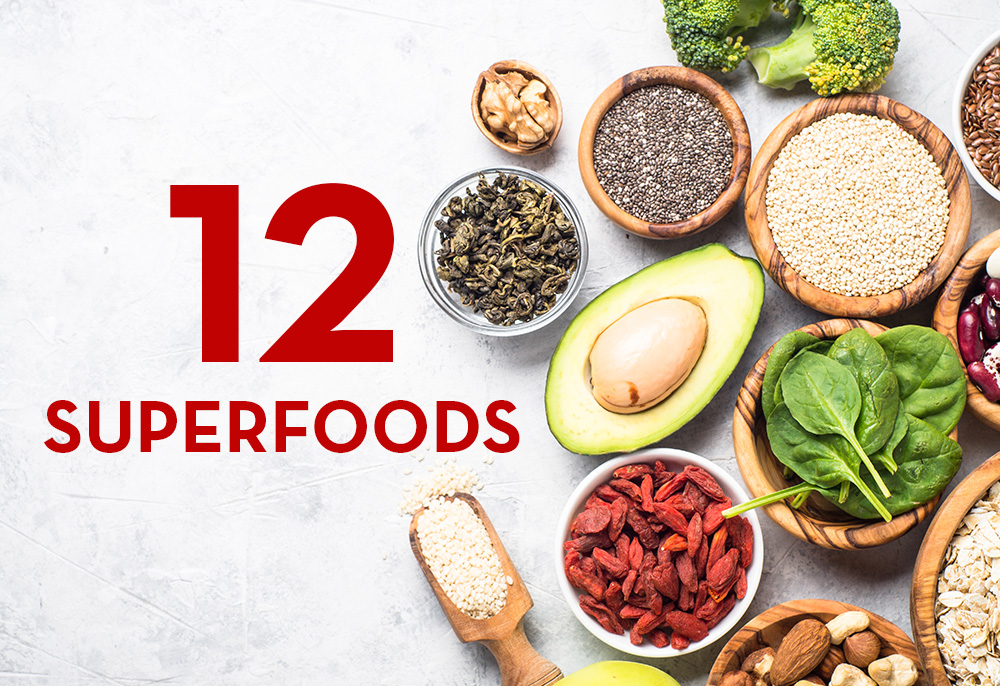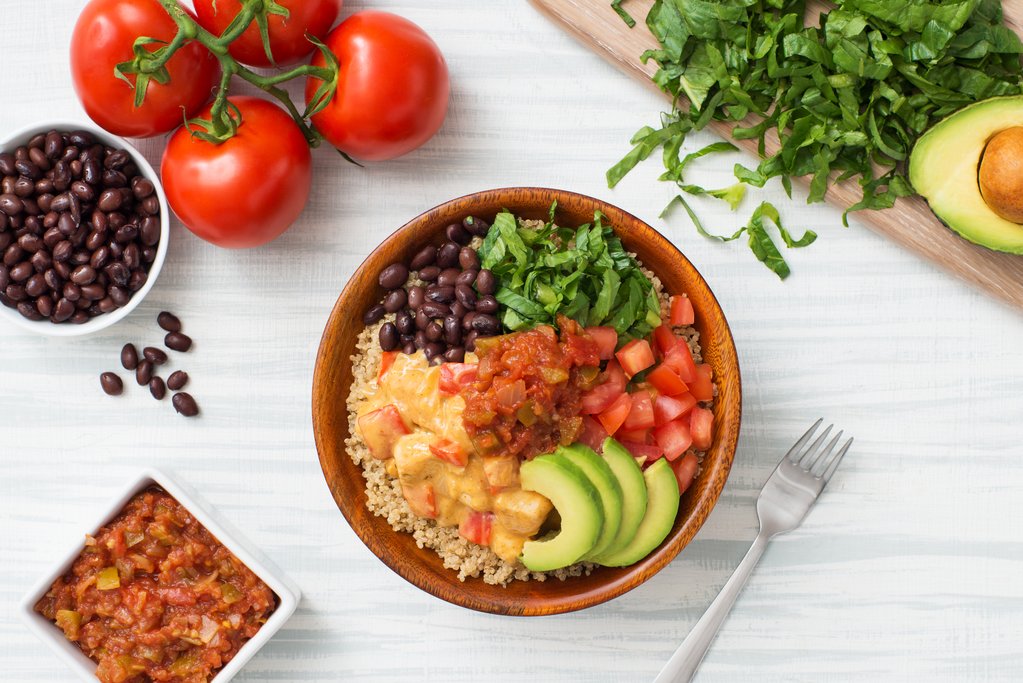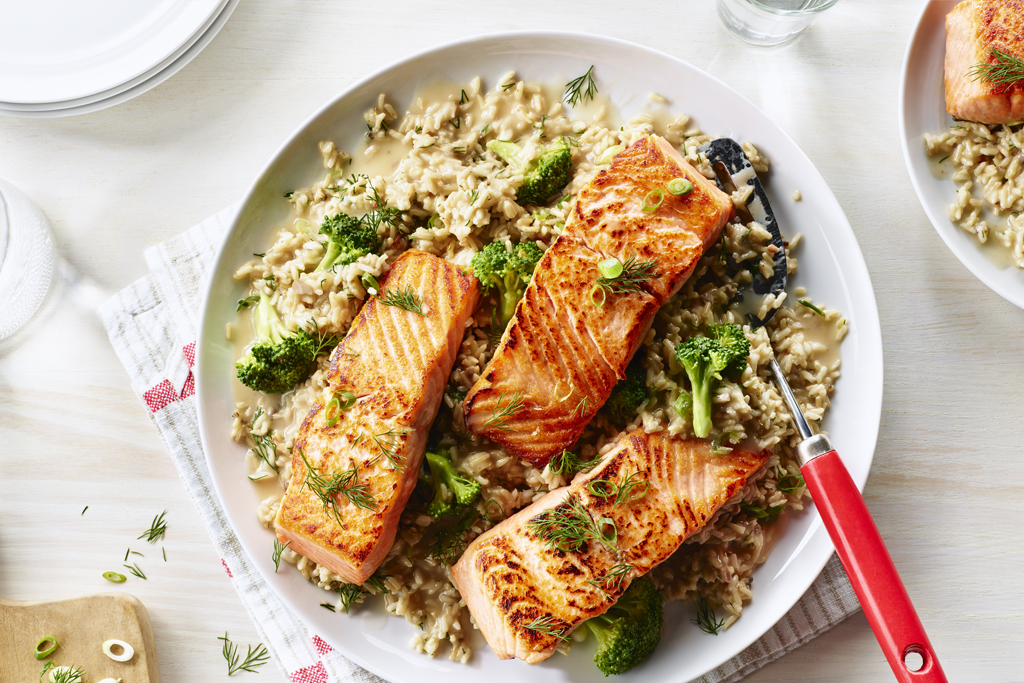These 12 superfoods pack a nutritional punch with healthy fats, vitamins and antioxidants. Make them part of your diet to reap the delicious benefits of smart eating.
Amazing Avocados
Add avocados to salads, sandwiches or snacks—they’re an important part of a heart-healthy diet because they’re a good source of vitamin E and C as well as unsaturated fat. But watch out because they’re also a source of calories. An average-size avocado has about 230 calories, most of which are from monounsaturated fat.
TIP: Rock-hard avocados will ripen within a few days and become soft if stored in a paper bag at room temperature.
Bring on the Berries
It’s easy to incorporate berries into practically every meal—toss a handful onto morning oatmeal or fold some into turkey or chicken salad for lunch. But remember, water causes berries to deteriorate so don’t wash them until you plan to use them.
TIP: Frozen berries are as nutritious as fresh, so keep a bag stashed in the freezer to add to your morning smoothie.
Big, Bold Broccoli
No wonder broccoli is so high on the list of superfoods—1 cup of raw florets contains over a day’s worth of vitamins C and K. Broccoli is always a great go-to side dish, but it’s also delicious as a soup and in a salad.
Squeeze on Some Citrus
Citrus enhances the flavour of nearly everything it touches. Packed with vitamin C, a dietary antioxidant, its bright flavour adds zip to appetizers, drinks and entrées.
TIP: To give recipes even more intense flavour, add the zest of citrus fruit to any recipe calling for citrus juice.
The Greatness of Grains
Incorporate whole grains into daily menus to promote good digestive and cardiovascular health. Some of our favorite grains include bulgur and quinoa.
Sip Green Tea
Green tea contains high levels of antioxidants—substitute your morning cup of coffee with brewed green tea, or pour a glass of iced green tea for an afternoon pick-me-up.
Go Green with Greens
Leafy greens like spinach, kale, chard and collards are nutritional powerhouses. Be sure to wash all greens well, especially if purchased in loose bundles rather than in bags. The leaves tend to be very sandy.
TIP: To thoroughly wash greens, fill a sink with cold water. Add the leaves and swish them in the water to loosen dirt and sand.
Nuts Over Nuts
Nuts, such as almonds and walnuts, are a great addition to a healthy diet. A small handful can tide you over between meals and they’re delicious in dips, pasta and marinades. But remember, eat nuts in moderation—they’re a source of calories.
Olive Oil
Like avocados, olive oil is high in monounsaturated fat, making it a heart-healthy option.
TIP: Extra-virgin olive oil has the best flavour of olive oil varieties and is what you want to use on salads or drizzled over meat, fish or vegetables after cooking.
Salmon to Savour
Salmon contains high levels of omega-3 fatty acids which are essential for good cardiovascular health. You can try it pan-seared, baked or grilled thin slices of smoked salmon toast makes a unique, protein-packed breakfast option.
TIP: Store salmon in the coldest part of the fridge on a bed of ice that’s been covered with a piece of plastic wrap.
You Say Tomato
Tomatoes are a good source of of vitamins A and C. Salads and sandwiches are the first dishes that come to mind when thinking about tomatoes, but they’re also delicious with eggs and on pizza.
TIP: Canned tomatoes make a good substitute for fresh tomatoes during winter months when tomatoes are out of season. Use canned tomatoes only in cooked dishes.
Eat More Yogurt
Yogurt is a good source of calcium, protein and vitamins. Thick, Greek-style yogurt can be used in recipes in place of sour cream, and it adds body to a morning smoothie. Use plain yogurt instead of flavoured varieties to cut back on sugar.



